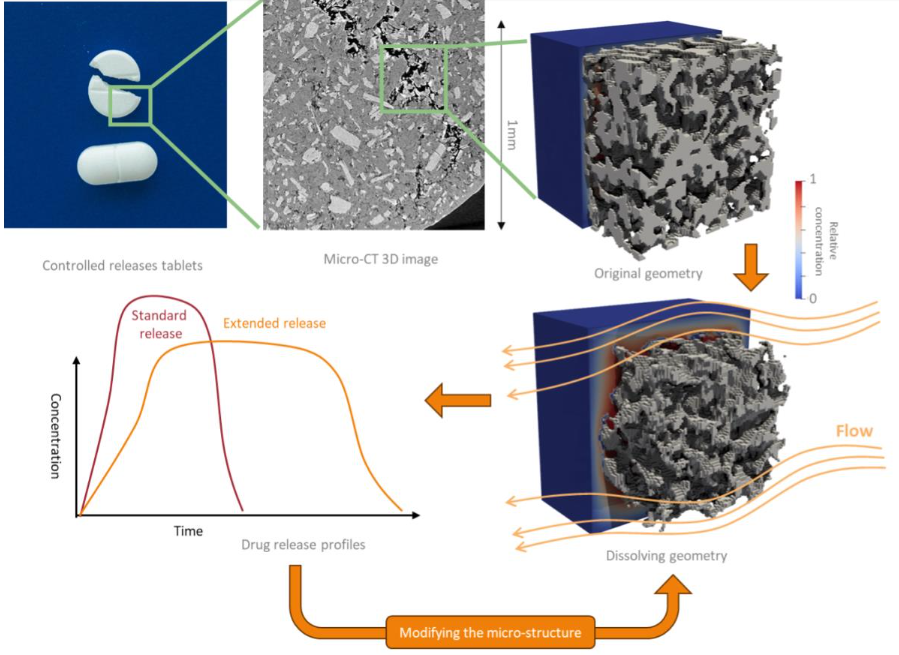CFD-AI aided design of controlled-release drugs
- Academic lead
- Ali Hassanpour, School of Chemical and Process Engineering, A.Hassanpour@leeds.ac.uk
- Co-supervisor(s)
- Arash Rabbani, School of Computing, A.Rabbani@leeds.ac.uk, Milene Volpato, School of Medicine, M.Volpato@leeds.ac.uk
- Project themes
- Biomedical Flows, Industrial Processes
Controlled-release tablets provide sustained release of medication over an extended period which could be critical for treating chronic conditions that require constant medication levels in the body, such as diabetes, hypertension, and mental health disorders. However, designing the tablet micro-structures to achieve the desired release rate is challenging and requires complex numerical modelling which is the focus of this PhD project. The developed computational model will use 3D images of Active Pharmaceutical Ingredients (APIs) in a tablet as input to simulate the dissolution process over time. The dissolution kinetics will be modelled by solving the Noyes-Whitney equation on a cubic grid representing the tablet and the surrounding fluid will be modelled to account for advection and diffusion of dissolved drug. By coupling the transport equations, the model will predict the overall drug release rate for a given tablet micro-structure which will be validated by the experimental work on the API release from the tablet in solutions. An inverse modelling approach will then be used powered by Bayesian surrogate models to determine optimal micro-structures that yield a target release profile tailored to patient needs. The project will provide a valuable computational tool for designing controlled-release tablets and should prepare the student for countless opportunities in pharmaceutical companies working on discovery of patient-specific treatments.

